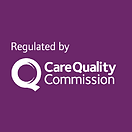
Lifestyle medicine
RECOGNISED SPECIALITY WITHIN MEDICINE FOCUSSING ON ADDRESSING 6 MAIN PILLARS
nutrition
Food can be the medicine we need to help feed and fuel our hormones and help manage hormonal imbalances. A diet filled with whole unprocessed foods with plenty of plant-based fruit and vegetables which are high in antioxidants, mineral and vitamins is vital to help restore natural balance within our bodies. At certain phases of the menstrual cycle in menstruating women, specific foods can help support hormones, help boost progesterone and metabolise oestrogen to prevent hyperoestrogenism.


exercise
Physical activity and exercise are not only beneficial for physical health but also mental health. Physical activity comes in multiple modalities (cardio, strength, flexibility etc) and can be modified to tailor individual needs. No one size fits all in the fitness arena. Everyone is different, responds differently and is on their own unique journey. How I train during my hormonal cycle varies, so I can best help support and balance my hormones. There are benefits and negatives to different ways of training but being educated on what these are and how to use them to your advantage is key.
stress management
Stress can be positive if managed properly. If we do not manage stress positively, the chemical and hormonal changes that ensue in our bodies can be negative. It is how we manage stress that is crucial. That may sound easier than it is. Hyperawareness and over reactions to stress at specific phases in the menstrual cycle or when menopausal can occur. I NEVER make crucial decision in my life at certain stages of my cycle. Education around this, knowledge and awareness and a set of management tools for this is vital. From mindfulness, breathing, relaxation and other stress management techniques, here is the forum where we will discuss these issues.


sleep
SLEEP! My mother always told me when I was stressed, that a good night sleep would make it all feel better tomorrow. On the whole, she was right. I mean, when is a parent never right! Sleep is such an underused and underrated tool for health. The chemical changes that occur from lack of sleep and how we react is phenomenal. We spend A THIRD of our life asleep – I think some attention needs to be given to this and how we can improve our sleep hygiene for better health. So many key bodily functions occur when we sleep – growth, hormone release, repair and regrowth. It is such a vital part of lifestyle medicine.
avoidance of substances
Toxic substances is not limited to alcohol, drugs and smoking, Food and environmental substances can be hormonal disrupters and can be just as damaging to your health. How we limit these toxins and how we can encourage behaviour change to support this is key and complex. Lifestyle medicine looks at the stage of changes people are in and the barriers, and tries to address this. Utilising individualised plans, management of this pillar can occur.


healthy relationships
Healthy relationships with colleagues, families and friends is crucial to mental and physical health. Toxic relationships can result in stress and a cascade of adverse reaction to physical health. Premenstrual, perimenopausal and menopausal women can struggle with unhealthy relationships more due to hormonal imbalances which can lead to arguments, distancing and even separation/divorces occurring with their partners due to the physical and chemical changes that occur in our body. Being aware of this and having this knowledge can help women and their partners deal with their relationships better. Choose your inner circle carefully – it can be small but should bring a lot of joy in your life. There are plenty of people who are toxic and they are not worth your time and or energy. We should surround ourselves with like minded individuals who we can form health relationships with.

Bespoke consultations
The Clinic

MORE THAN JUST A GP APPOINTMENT
Dr Milli provides bespoke, individualised consultations with root cause analysis in 1 hour. A full history to look at nutrition, exercise, sleep, mental health, relationships and toxins are explored and then formulation of a shared personalised plan to manage your health.
articles & blogs














